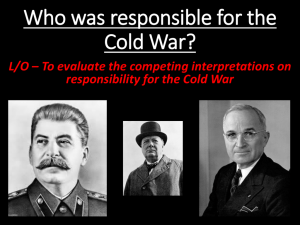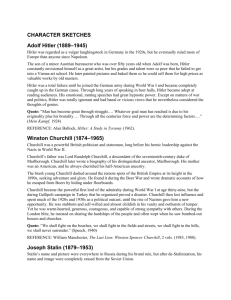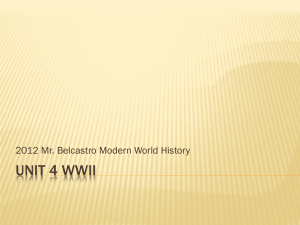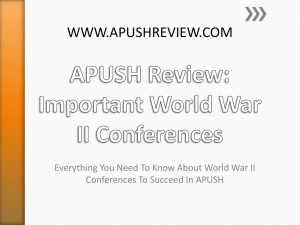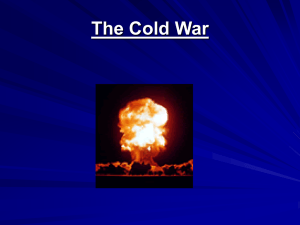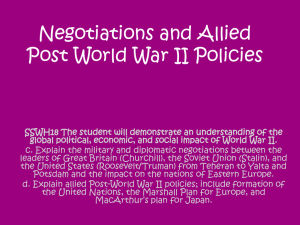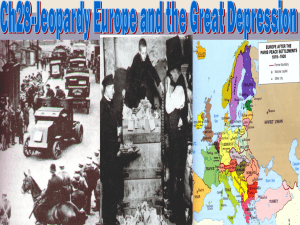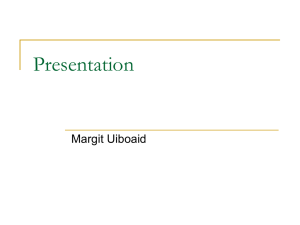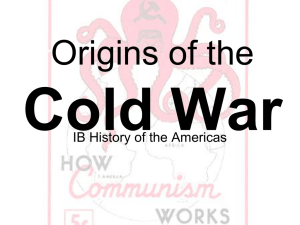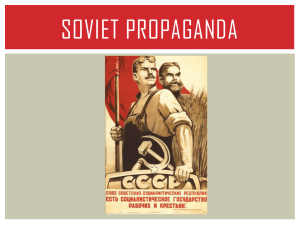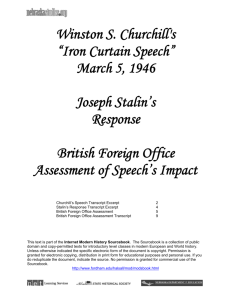Name: Compare and Contrast Historical Sources as Evidence Paper
advertisement
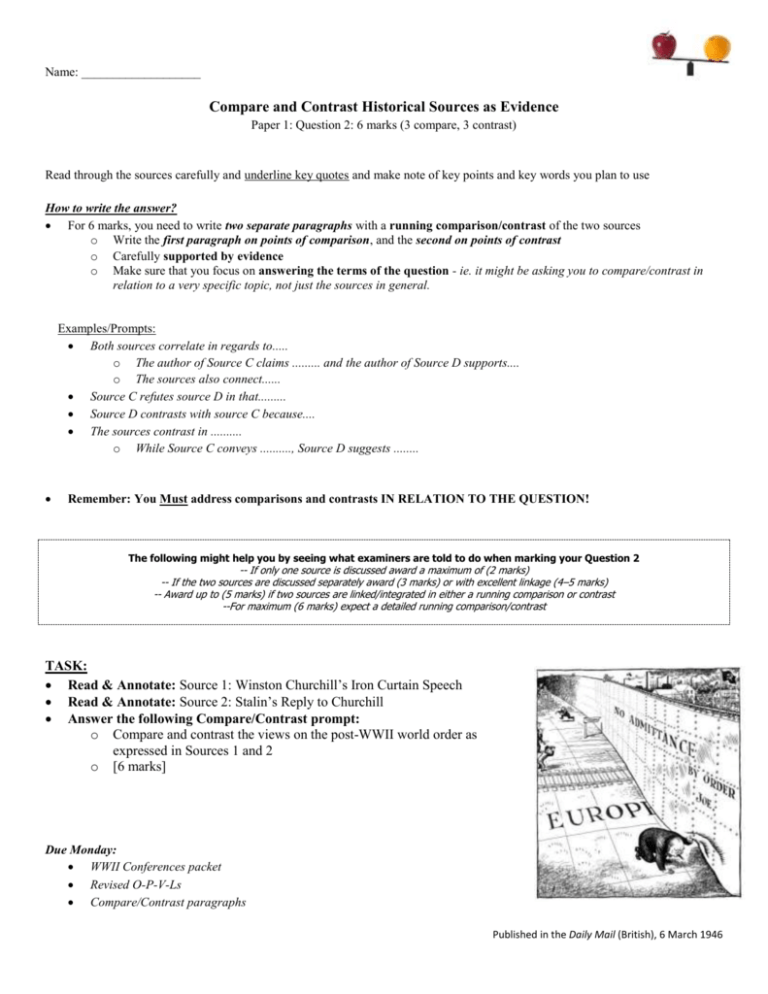
Name: ___________________ Compare and Contrast Historical Sources as Evidence Paper 1: Question 2: 6 marks (3 compare, 3 contrast) Read through the sources carefully and underline key quotes and make note of key points and key words you plan to use How to write the answer? For 6 marks, you need to write two separate paragraphs with a running comparison/contrast of the two sources o Write the first paragraph on points of comparison, and the second on points of contrast o Carefully supported by evidence o Make sure that you focus on answering the terms of the question - ie. it might be asking you to compare/contrast in relation to a very specific topic, not just the sources in general. Examples/Prompts: Both sources correlate in regards to..... o The author of Source C claims ......... and the author of Source D supports.... o The sources also connect...... Source C refutes source D in that......... Source D contrasts with source C because.... The sources contrast in .......... o While Source C conveys .........., Source D suggests ........ Remember: You Must address comparisons and contrasts IN RELATION TO THE QUESTION! The following might help you by seeing what examiners are told to do when marking your Question 2 -- If only one source is discussed award a maximum of (2 marks) -- If the two sources are discussed separately award (3 marks) or with excellent linkage (4–5 marks) -- Award up to (5 marks) if two sources are linked/integrated in either a running comparison or contrast --For maximum (6 marks) expect a detailed running comparison/contrast TASK: Read & Annotate: Source 1: Winston Churchill’s Iron Curtain Speech Read & Annotate: Source 2: Stalin’s Reply to Churchill Answer the following Compare/Contrast prompt: o Compare and contrast the views on the post-WWII world order as expressed in Sources 1 and 2 o [6 marks] Due Monday: WWII Conferences packet Revised O-P-V-Ls Compare/Contrast paragraphs Published in the Daily Mail (British), 6 March 1946 1. Winston Churchill’s Iron Curtain Speech On March 5, 1946, Winston Churchill gave this speech at Westminster College, in Fulton, Missouri, after receiving an honorary degree. With typical oratorical skills, Church introduced the phrase "Iron Curtain" to describe the division between Western powers and the area controlled by the Soviet Union. As such the speech marks the onset of the Cold War. The speech was very long, and here excerpts are presented. The United States stands at this time at the pinnacle of world power. It is a solemn moment for the American democracy. For with this primacy in power is also joined an awe-inspiring accountability to the future. As you look around you, you must feel not only the sense of duty done, but also you must feel anxiety lest you fall below the level of achievement. Opportunity is here now, clear and shining, for both our countries. To reject it or ignore it or fritter it away will bring upon us all the long reproaches of the aftertime. It is necessary that constancy of mind, persistency of purpose, and the grand simplicity of decision shall rule and guide the conduct of the English-speaking peoples in peace as they did in war. We must, and I believe we shall, prove ourselves equal to this severe requirement. I have a strong admiration and regard for the valiant Russian people and for my wartime comrade, Marshal Stalin. There is deep sympathy and goodwill in Britain -- and I doubt not here also -- toward the peoples of all the Russias and a resolve to persevere through many differences and rebuffs in establishing lasting friendships. It is my duty, however, to place before you certain facts about the present position in Europe. From Stettin in the Baltic to Trieste in the Adriatic an iron curtain has descended across the Continent. Behind that line lie all the capitals of the ancient states of Central and Eastern Europe. Warsaw, Berlin, Prague, Vienna, Budapest, Belgrade, Bucharest and Sofia; all these famous cities and the populations around them lie in what I must call the Soviet sphere, and all are subject, in one form or another, not only to Soviet influence but to a very high and in some cases increasing measure of control from Moscow. The safety of the world, ladies and gentlemen, requires a unity in Europe, from which no nation should be permanently outcast. It is from the quarrels of the strong parent races in Europe that the world wars we have witnessed, or which occurred in former times, have sprung. Twice the United States has had to send several millions of its young men across the Atlantic to fight the wars. But now we all can find any nation, wherever it may dwell, between dusk and dawn. Surely we should work with conscious purpose for a grand pacification of Europe within the structure of the United Nations and in accordance with our Charter. In a great number of countries, far from the Russian frontiers and throughout the world, Communist fifth columns are established and work in complete unity and absolute obedience to the directions they receive from the Communist center. Except in the British Commonwealth and in the United States where Communism is in its infancy, the Communist parties or fifth columns constitute a growing challenge and peril to Christian civilization. The outlook is also anxious in the Far East and especially in Manchuria. The agreement which was made at Yalta, to which I was a party, was extremely favorable to Soviet Russia, but it was made at a time when no one could say that the German war might not extend all through the summer and autumn of 1945 and when the Japanese war was expected by the best judges to last for a further eighteen months from the end of the German war. I repulse the idea that a new war is inevitable -- still more that it is imminent. It is because I am sure that our fortunes are still in our own hands and that we hold the power to save the future, that I feel the duty to speak out now that I have the occasion and the opportunity to do so. I do not believe that Soviet Russia desires war. What they desire is the fruits of war and the indefinite expansion of their power and doctrines. But what we have to consider here today while time remains, is the permanent prevention of war and the establishment of conditions of freedom and democracy as rapidly as possible in all countries. Our difficulties and dangers will not be removed by closing our eyes to them. They will not be removed by mere waiting to see what happens; nor will they be removed by a policy of appeasement. What is needed is a settlement, and the longer this is delayed, the more difficult it will be and the greater our dangers will become. From what I have seen of our Russian friends and allies during the war, I am convinced that there is nothing they admire so much as strength, and there is nothing for which they have less respect than for weakness, especially military weakness. For that reason the old doctrine of a balance of power is unsound. We cannot afford, if we can help it, to work on narrow margins, offering temptations to a trial of strength. Last time I saw it all coming and I cried aloud to my own fellow countrymen and to the world, but no one paid any attention. Up till the year 1933 or even 1935, Germany might have been saved from the awful fate which has overtaken her and we might all have been spared the miseries Hitler let loose upon mankind. There never was a war in history easier to prevent by timely action than the one which has just desolated such great areas of the globe. It could have been prevented, in my belief, without the firing of a single shot, and Germany might be powerful, prosperous and honored today; but no one would listen and one by one we were all sucked into the awful whirlpool. We must not let it happen again. This can only be achieved by reaching now, in 1946, a good understanding on all points with Russia under the general authority of the United Nations Organization and by the maintenance of that good understanding through many peaceful years, by the whole strength of the English-speaking world and all its connections. If the population of the English-speaking Commonwealth be added to that of the United States, with all that such cooperation implies in the air, on the sea, all over the globe, and in science and in industry, and in moral force, there will be no quivering, precarious balance of power to offer its temptation to ambition or adventure. On the contrary there will be an overwhelming assurance of security. If we adhere faithfully to the Charter of the United Nations and walk forward in sedate and sober strength, seeking no one's land or treasure, seeking to lay no arbitrary control upon the thoughts of men, if all British moral and material forces and convictions are joined with your own in fraternal association, the high roads of the future will be clear, not only for us but for all, not only for our time but for a century to come. Winston Churchill - March 5, 1946 http://www.fordham.edu/halsall/mod/churchill-iron.asp 2. Stalin’s Reply to Churchill (Iron Curtain Speech), 1946 In mid-March, 1946, a “Pravda” correspondent requested J. Stalin to clarify a number of questions connected with Mr. Churchill’s speech at Fulton, U.S.A. Below are J. Stalin’s replies to the correspondent’s questions. Source: Stalin on Post-War International Relations, Soviet News, 1947, transcription: Brian Reid for Marxist Internet Archive, 2008 ... In substance, Mr. Churchill now stands in the position of a firebrand of war. And Mr. Churchill is not alone here. He has friends not only in England but also in the United States of America. In this respect, one is reminded remarkably of Hitler and his friends. Hitler began to set war loose by announcing his racial theory, declaring that only people speaking the German language represent a fully valuable nation. Mr. Churchill begins to set war loose, also by a racial theory, maintaining that only nations speaking the English language are fully valuable nations, called upon to decide the destinies of the entire world. The German racial theory brought Hitler and his friends to the conclusion that the Germans, as the only fully valuable nation, must rule over other nations. The English racial theory brings Mr. Churchill and his friends to the conclusion that nations speaking the English language, being the only fully valuable nations, should rule over the remaining nations of the world.... As a result of the German invasion, the Soviet Union has irrevocably lost in battles with the Germans, and also during the German occupation and through the expulsion of Soviet citizens to German slave labor camps, about 7,000,000 people. In other words, the Soviet Union has lost in men several times more than Britain and the United States together. It may be that some quarters are trying to push into oblivion these sacrifices of the Soviet people which insured the liberation of Europe from the Hitlerite yoke. But the Soviet Union cannot forget them. One can ask therefore, what can be surprising in the fact that the Soviet Union, in a desire to ensure its security for the future, tries to achieve that these countries should have governments whose relations to the Soviet Union are loyal? How can one, without having lost one's reason, qualify these peaceful aspirations of the Soviet Union as "expansionist tendencies" of our Government?. . . Mr. Churchill wanders around the truth when he speaks of the growth of the influence of the Communist parties in Eastern Europe.... The growth of the influence of communism cannot be considered accidental. It is a normal function. The influence of the Communists grew because during the hard years of the mastery of fascism in Europe, Communists slowed themselves to be reliable, daring and self-sacrificing fighters against fascist regimes for the liberty of peoples. Mr. Churchill sometimes recalls in his speeches the common people from small houses, patting them on the shoulder in a lordly manner and pretending to be their friend. But these people are not so simpleminded as it might appear at first sight. Common people, too, have their opinions and their own politics. And they know how to stand up for themselves. It is they, millions of these common people, who voted Mr. Churchill and his party out in England, giving their votes to the Labor party. It is they, millions of these common people, who isolated reactionaries in Europe, collaborators with fascism, and gave preference to Left democratic parties From "Stalin's Reply to Churchill," March 14, 1946 (interview with Pravda), The New York Times, p. 4. http://www.fordham.edu/halsall/mod/1946stalin.html
